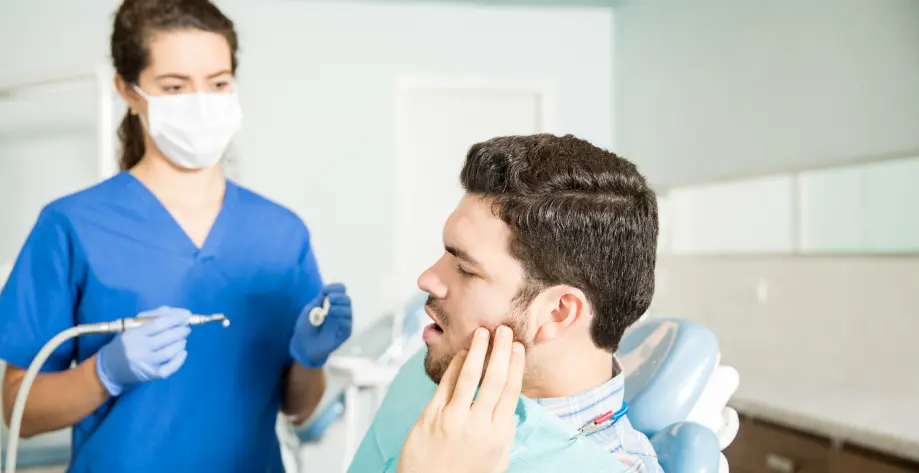Understanding Maxillofacial Surgery: Key Facts & Insights
Schedule an Appointment
Dentistry is among the wide range of medical specialties, and Maxillofacial in dentistry addresses both medical (dental) and cosmetic concerns. It is among the major dental areas that help patients restore function, reduce pain, and improve their facial appearance. So, what does maxillofacial mean? It is basically the conditions related to the face, jaw, and neck. Surgeries involving these maxillofacial areas include soft tissues, which is why they are called maxillofacial surgeries. There are various procedures in this surgery, which are performed by highly trained maxillofacial surgeons. In this blog, let us discuss some interesting insights and key facts about maxillofacial surgery.
What Is Maxillofacial Surgery
Usually, in dental (oral) surgery, damaged teeth, missing teeth, infected gums, and roots of the teeth are treated. But in maxillofacial surgery, along with these conditions, any problems related to the jaw, neck, and face are surgically treated. It includes a lot of surgeries, like dental and jaw implants, facial reconstruction surgery, cleft palate and lip repair, bone grafting, sleep apnea surgery, and more.
Why Maxillofacial Surgery is Important
Now that you know what is maxillofacial, let us see why it is important. Patients who have suffered a facial trauma, oral cancer, TMJ (Temporomandibular Joint Disorder), tumors, infections, cleft lip, or other medical conditions can receive maxillofacial surgery to relieve pain, restore the damaged region, and improve their overall look.
If they do not address these concerns, the pain will not end, there will be other complications related to speaking or chewing, and conditions like sleep apnea can get worse, which can all reduce their overall health and quality of life.
What Does Maxillofacial Surgery Include
If you have ever wondered who is a maxillofacial surgeon what do they do, keep reading and you will know.
During the Surgery
Some maxillofacial surgeries can be completed in just one visit to a dental clinic, but others may take many appointments and several procedures, which is based on the exact condition you want to be treated for.
- ✦ First, you will be given general anesthesia, so you won’t have to experience any pain during the maxillofacial surgery.
- ✦ Next, the maxillofacial surgeon makes a single or multiple incisions (cuts) where the surgery is needed, like the jaw, face, or neck.
- ✦ The surgery may also involve using specialized surgical tools to correct the condition you have. Maxillofacial surgeons also use dental X-rays as a guide during the surgery.
- ✦ The final steps are closing the incisions with stitches to prevent further infections or complications.
After the Surgery
- ✦ When the anesthesia wears off, the patient may feel some discomfort as they have just gotten out of surgery.
- ✦ In some cases, there might be side effects, like swelling around the surgical site, bleeding, etc., which can be managed with medications prescribed by your maxillofacial specialist.
Recovery
Based on the type of condition and the maxillofacial surgery you have received, the recovery time can also change for each surgery. If you had a dental implant, recovery is less, maybe up to 2 weeks. For other complicated surgeries, recovery can take many months, where you will be advised to change your diet and limit your normal activities. During this recovery period, it is very important to avoid hard or chewy foods, alcohol, or tobacco products becuase the stitches may rip out or cause further issues in the surgical area, like your jaw. If you feel any discomfort, you can get rest, apply ice packs (to reduce swelling), and take your medications as advised by your dentist.
Key Facts About Maxillofacial Surgery
- Maxillofacial surgery is unique because it helps patients address both dental and medical problems, all in one surgery.
- From jaw disorders to oral cancers and cleft lip repairs, maxillofacial surgery can be used to treat a wide range of conditions.
- Sometimes, when the molar tooth is impacting the tissues around other teeth or damaging the jawbone, maxillofacial surgery is the best way to remove this molar tooth.
- Patients with sleep apnea can comfortably sleep after maxillofacial surgery becuase the jaw and extra tissues around it are removed.
- Even underlying inherited disorders can be addressed with maxillofacial surgeries.
- Infections or ulcers in the mouth can also be treated with this surgery.
Benefits of Maxillofacial Surgery
Maxillofacial surgery can be a lifesaver in extreme medical and dental conditions like oral cancer. In other conditions, like Temporomandibular Joint Disorder or a misaligned jaw, maxillofacial surgery helps in completely reducing the pain and also improves the affected region’s functions. Facial tumors are removed surgically, and the damaged areas can be reconstructed during the maxillofacial surgery.
Conclusion
In conclusion, maxillofacial surgery is very important to address medical and dental issues. Severe pain in areas like the neck, face, or jaw can be easily reduced, and their function can also be improved. Maxillofacial surgery also helps patients who are seeking to improve their appearance after a facial trauma or severe disorders. If you are looking to get the best Maxillofacial Surgery in Abu Dhabi, visit Whitefield Dental Clinic. Our maxillofacial surgeons have 10+ years of experience in treating a wide range of conditions. You can contact our team directly to book your appointment today!
